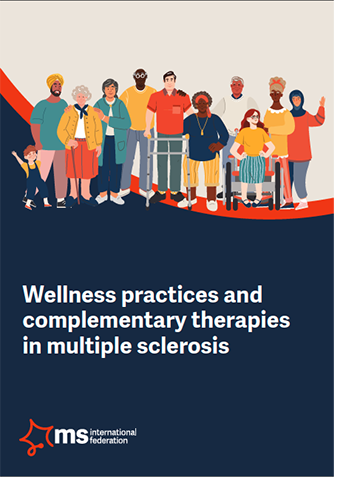Wellness practices and complementary therapies describe approaches that come from a variety of traditions and practices, such as exercise, natural health products, herbs, homeopathic medicine, vitamins, acupuncture, massage, meditation, and spirituality. Many Canadians use these approaches as a way of managing their MS in addition to enhancing their overall wellness. People are encouraged to maintain open and ongoing discussions with their MS healthcare team when exploring disease management options.
Tell your health care team about any medication you are taking.
It is important that you let your healthcare team know if they are using any other kinds of medications or products (including over-the-counter medications) along with their prescribed medications. The treatments your doctor prescribes for you have been tested in carefully-designed clinical trials and accepted by the MS medical community as safe and effective therapies. So, stay with your prescribed medications even if you decide to add a different practice or complementary therapy to your treatment plan.
You should ask the following questions:
- What is the practice or complementary therapy recommended for?
- Has it been evaluated for safety and efficacy in people with MS?
- What are the expected benefits?
- Are there known side effects or risks?
- What amount is recommended, and who is making the recommendation?
- Should people with a certain condition or disease (such as MS) avoid the use of the product?
- How much does it cost, and is it covered through the province or private insurance?
Keep a health journal.
Keep a detailed list of what you take or what is done and any changes you experience. Use the journal to track your prescription and over-the-counter treatments and vitamins, herbals, dietary supplements.
Read Wellness practices and complementary therapies.

This content was developed by the MS International Federation. Some treatments or practices mentioned may not be available in Canada. If you have questions related to the treatments or practices described, please connect with an MS Navigator or contact your health care provider.